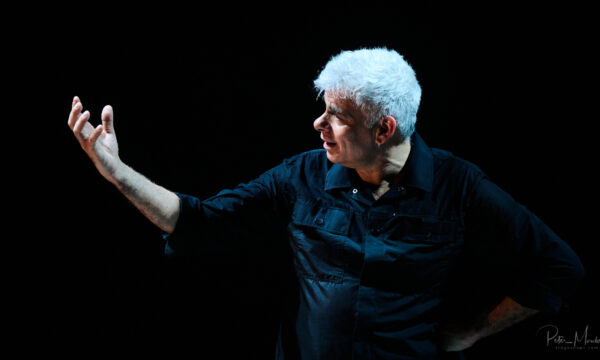Les Blancs at the National Theatre

Playwright Lorraine Hansberry is best known for her powerful play A Raisin in the Sun, but she felt that her unfinished final effort Les Blancs could be her masterpiece. She entrusted former husband and literary executor Robert Nemiroff to complete it after her death, and he sewed together the missing pieces. Director Yaël Farber and the rest of the National Theatre team have laboured painstakingly to ensure that Hansberry’s story, which captures the build-up to a revolution, is told as clearly and as passionately as she intended.
In an unnamed African state, a group of white missionaries has founded a hospital and created strong links with some of the local families. After a long absence, Tshembe (Danny Sapani) returns to his native land from Europe to attend his father’s funeral. He visits the missionary complex where he spent a lot of time as a child with his mother and brothers. He can immediately sense that racial tensions are on the brink of snowballing into open conflict and violence. When he is reunited with his older brother (who has taken a path he does not approve of) and their younger half-brother (who seems to have lost the way), his initial coolness and detachment are replaced with a deep concern and, eventually, rage.
Les Blancs is clever in its representation of the infinite strata of complexities surrounding racial and political issues. Everyone is right in some respects and wrong in others, and as the audience shares Tshembe’s perspective, which is divided by his split loyalties, it is as easy to sympathise as it is to condone each side. Each faction sees the other’s violence as brutal, but their own as not only as justifiable but necessary. Prejudice, false assumptions and miscommunication widen the gap between whites and blacks and eventually shake up the harmony even between members of the same family.
Visually, the play is absolutely mesmerising. The dusty ground, the smoky air, the painted faces of the ladies of the village and the timeless costumes of the characters form evocative pictures in motion, rather than act as mere features of a story. A painted, scantily clad woman slowly walks around the stage invisible to the characters. She is a haunting presence weighing down on Tshembe’s conscience and adds pathos with her existence alone.
Danny Sapani’s performance is fierce and captivates the audience with its intensity from beginning to end. The cast at large is strong and the production as a whole manages to combine first-class drama with important debates regarding a part of history that has still not finished playing out.
Mersa Auda
Les Blancs is on at the National Theatre from 31st March until 2nd June 2016. Book your tickets here.


























Facebook
Twitter
Instagram
YouTube
RSS